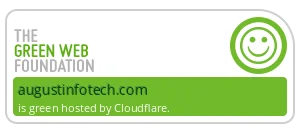Introduction
Web development standards have changed drastically with advanced features added to PHP 8. This blog delves into how these enhancements can streamline your development process, focusing mainly on transitioning from PHP 7 to PHP 8. The changes mentioned below are essential for any developer who wants to ensure application performance and maintainability in PHP 8 Web Development.
Released on November 24, 2022, PHP 8 significantly improved from PHP 7.4, including PHP 8 new features such as Named Arguments, Attributes, Union Types, Constructor Property Promotion, and Match Expressions. These developments work to deliver code that is more robust, readable, and efficient in its operations for the modern developer.
Exploring key PHP 8 new features
1. Named arguments: Named arguments simplify how arguments are passed into functions by reducing the reliance on order, making them easier to read, and significantly enhancing PHP 8 Web Development.
Example:
```php
function createPost($title, $content, $status = 'draft') {
echo "Creating post: $title with status $status";
}
// Using Named Arguments
createPost(title: 'Hello World', content: 'This is a test post', status: 'published');
```
Named arguments allow more readability of the code and hence, debugging, aligning with PHP 8 best practices for cleaner and more maintainable code.
2. Attributes(Annotations) for PHP 8 web development: This provides a native way to add structured and readable metadata to declarations.
Example:
```php
#[Attribute]
class UserPermission {
public function __construct(public string $permission) {}
}
#[UserPermission('edit')]
class PostEditor {
// User with edit permission
}
```
Attributes significantly enhance the older PHPDoc annotations because they are inherently compiled into the opcode, improving runtime performance and natively integrating new annotation methods.
3. Union types: Functions can now receive and return more than one type, enhancing the flexibility of function signatures.
Example:
```php
function addNumbers(int|float $a, int|float $b): int|float {
return $a + $b;
}
echo addNumbers(5, 2.5); // Output: 7.5
```
Union Types allow developers to create more flexible or dynamic APIs, which can be much more helpful in working their way through diverse data inputs, increasing an application’s real-world data-handling abilities.
4. Constructor property promotion: A change designed to simplify the definition and assignment of properties from within a class constructor.
Example:
```php
class Rectangle {
public function __construct(
public float $length,
public float $width
) {}
public function area(): float {
return $this->length * $this->width;
}
}
$rectangle = new Rectangle(10, 20);
echo "Area: ". $rectangle->area(); // Output: 200
```
This feature eliminates boilerplate code in class definitions, cleaning up the PHP code and bringing it closer to other object-oriented languages. This exposure can encourage PHP developers to adopt best practices.
5. Match expression: A concise, readable replacement to the switch statement.
Example:
```php
$status = 'editor';
echo match ($status) {
'admin' => 'Admin access',
'editor' => 'Editor access',
'guest' => 'Guest access',
default: 'No access'
}; // Output: Editor access
```
Technical insights and performance enhancements:
Let’s delve into the under-the-hood mechanisms powering PHP 8, most notably the Just-In-Time (JIT) compilation, which significantly enhances performance, especially in computation-intensive applications.
How to increase website performance in PHP 8? Enhancing website performance in PHP 8 involves leveraging its new JIT compilation feature and optimizing your codebase with the new syntactic features. By restructuring existing code to use Named Arguments and Match Expressions, developers can reduce computational overhead and improve readability, which indirectly boosts performance. This optimization is crucial for developers looking to enhance their web applications’ efficiency and response times.
PHP 8 vs PHP 7: Upgrading from PHP 7 to PHP 8 brings significant advantages in speed and efficiency. The inclusion of JIT in PHP 8, along with new features like Union Types and Attributes, makes PHP scripts faster and more responsive. This comparison highlights the substantial performance improvements inherent in the latest version.
Is PHP 8 Faster Than PHP 7?
Yes, PHP 8 is faster than PHP 7, primarily due to the Just-In-Time (JIT) compilation technique that significantly improves the execution speed of PHP scripts, particularly in computation-heavy operations. This speed enhancement is part of what makes PHP 8 a compelling upgrade for current PHP users.
How to upgrade to PHP 8?
Upgrading to PHP 8 involves several steps that ensure compatibility and performance optimization:
-
Ensure all dependencies are compatible with PHP 8.
-
Test the existing PHP 7 codebase with a PHP 8 compatibility checker.
-
Update the code to utilize PHP 8 features for enhanced performance and security. These steps are essential for a smooth transition to PHP 8, as outlined in our detailed PHP 8 migration guide.
Evaluating the impact of PHP 8 in web development:
While most of the technical innovations, such as JIT compilation, are significant improvements, there are some broader implications, such as the enhanced PHP 8 security features which provide more robust protection mechanisms than PHP 7.
Let’s examine its pros and cons more closely to understand the benefits and issues a developer will likely face with this new version.
Pros:
– Performance improvements: The JIT compiler significantly improves the execution speed of PHP scripts, which is necessary for high-load applications.
– Type system improvements: Union and mixed types give function signatures more flexibility and support more robust type checking.
– Syntax improvements: Match expressions and named arguments improve code readability, reducing the possibility of mistakes.
Cons:
– Incompatibility: Porting some legacy PHP codebase would be very difficult due to their incompatibility with previous versions of PHP. For further insights on handling incompatibility and more detailed information, please refer to our comprehensive tutorial on Upgrading from PHP 7 to PHP 8.1.
– Steep learning curve: Developers accustomed to working with prior versions of PHP will need some time to learn the changes and additions to the language.
Understanding the pros and cons of PHP 8 will help you effectively deploy this technology into settings and scenarios where it can be of maximum advantage.
Project suitability and strategic deployment: Evaluating PHP 8’s suitability for different project scales—from large enterprises to smaller applications—is crucial for leveraging its capabilities effectively. This evaluation is especially important for an offshore development company looking to optimize resource allocation across diverse projects.
Large-scale applications or projects that usually require high performance and stability, like every e-commerce or extensive content management system, will be best suited for PHP 8 execution. At the same time, small projects that consume fewer resources on the server will not realize PHP 8’s potential, especially if the upgrade is costly in terms of resources spent on an upgrade and maintenance.
Conclusion:
What benefits most from the transition to PHP 8 are the performance improvement and better syntax. These new features have been designed for the practical challenges that modern web development meets, making PHP a more potent tool in the developer’s arsenal. Embracing these changes is essential for any business entity to stay competitive in the technology-evolving landscape, and the practicality of these features should give developers confidence in their decision to upgrade.
About August Infotech
As a leading provider of innovative IT solutions, August Infotech specializes in technologies like PHP 8, enhancing clients’ digital transformation journeys with expert-guided, custom web solutions. Our commitment to delivering tailored solutions ensures that we meet the unique needs of each client, empowering their growth and innovation in the competitive tech landscape.
Have you started working with PHP 8? Share your experiences and insights to help build a richer community knowledge base. Your contributions are invaluable to others navigating PHP 8 upgrades.






